Video Link: https://vimeo.com/252777593
Video Download: Hgh The Facts And Research
Video Stream: Hgh The Facts And Research
 Since Human Growth Hormone (HGH) has come along, it has had an almost revolutionary impact on the American public -- people have immediately taken notice and are searching for as much information about it as possible.
Since Human Growth Hormone (HGH) has come along, it has had an almost revolutionary impact on the American public -- people have immediately taken notice and are searching for as much information about it as possible.
HGH has been known to scientists since the 1930s, but it wasn't used until the late 1950s when it was being taken from the pituitary gland of cadavers and injected experimentally into patients (adults and children).
There were disease risks and health dangers involved with this type of hormone therapy 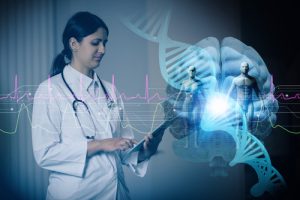 because the source was from dead bodies. It wasn't until the 1970s that the molecule was finally known in its full three-dimensional design to medical researchers.
because the source was from dead bodies. It wasn't until the 1970s that the molecule was finally known in its full three-dimensional design to medical researchers.
In the 1980s, scientists figured out how to use recombinant genetic engineering to mass-produce it bio-identically in laboratories. When news of this breakthrough reached the public, many people began asking:
- Does it actually improve vitality, well-being, and energy?
- Does it have rejuvenation properties on the human body?
The answer turned out to be in the affirmative! The benefits and side effects have been clinically studied for decades, and determining many advantages of it has been realized through thousands of trials, especially for adults over the age of 30 years old, who can reap many life-altering benefits from replacement therapy.
What Exactly is HGH and Why Has it Caused So Much Tumult in the Mainstream Media and Scientific Community?
Human Growth Hormone (HGH) is both an essential chemical protein and hormone that sends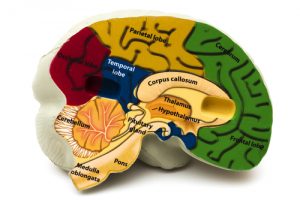 messages in the human body from the pituitary gland to the hepatic cells in the liver.
messages in the human body from the pituitary gland to the hepatic cells in the liver.
This molecule has been called the "Master Protein" and "Master Hormone" by some physician-scientists primarily because of the essential role it plays in regulating the human body's growth, development, repair and general maintenance.
Growth Hormone also plays a role in how the body maintains metabolism, fat burning, fat distribution, and muscle development.
HGH stimulates another pivotal molecule in the body, Insulin-like Growth Factor One (IGF-1), and this is what actually stimulates stem cell release from the bone marrow and increases cell regeneration in the body. This, in turn, has a big effect on major and minor organs of the human body.
Bone mineral density, immune modulation, levels of energy and mental function, all depend on adequate supplies of IGF-1 and HGH circulating in the bloodstream. Without HGH, IGF-1 would not "know" when or how much to be released from the liver. HGH is a secretagogue for IGF-1. Secretagogue, meaning something that stimulates something else to be released, and in this case IGF-1.
Thus, when GH levels fall because of a lack of pituitary gland stimulation, IGF-1 falls to insufficient levels. GH levels typically fall as a result of not being properly stimulated by the hypothalamus, which secretes the molecule Growth Hormone-Releasing Hormone.
Growth Hormone Deficiency and Metabolism
When HGH Deficiency occurs it causes the metabolism to slow down significantly, resulting in fat accumulation around the midsection and muscle atrophy.
Low HGH can lead to the development of diabetes, angina, high cholesterol, lethargy, heart disease, loss of emotional control, osteoporosis, obesity, loss of sex drive, lower energy levels during the day, and an entire ambrosia of other symptoms. Many of the indications associated with premature aging tend to be caused by a production decrease in HGH secreted from the pituitary gland.
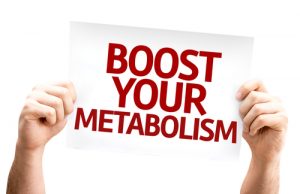 This results in a lower level of cell regeneration, which then reduces the capacity for the body to rebuild itself, including the organs, bones, tissues, skin, and other human cells. When a deficiency is present, the skin loses its collagen and capacity to hold water.
This results in a lower level of cell regeneration, which then reduces the capacity for the body to rebuild itself, including the organs, bones, tissues, skin, and other human cells. When a deficiency is present, the skin loses its collagen and capacity to hold water.
This can lead to fine lines around the eyes, loose sagging skin, age spots, and wrinkles. It is easy to see that Human Growth Hormone plays a central role in the bodily system that helps us to maintain our youthfulness and vitality.
What Does the Acronym HGH Stand for?
HGH means Human Growth Hormone, which is the laboratory-made hormone that is the synthetic chemical identical to the HGH produced by your pituitary gland. Recombinant HGH is produced through genetic engineering and it is identical in every way to the molecule created by the brain. This molecule contains 191 amino acids and is the largest molecule produced by the human body.
Because recombinant HGH is exactly the same as the hormone produced by the pituitary gland, it works exactly the same as you might expect it to when made naturally. The only way to put Human Growth Hormone into your body is through injections.
It cannot be put into the body any other way. This means that pills and sprays are ineffective means of delivering this vital hormone molecule into the body. Once it is injected into the body it stimulates cell regeneration, but not before it reaches the liver.
What are Growth Hormone Injections Good for?
Just by looking in the mirror after doing injections and exercising for 90 minutes in a quarterly cycle, you will be able to see a noticeable difference if you follow the protocol daily that includes a strict regimen of diet, exercise, and HGH therapy.
This is why you see deficient older folks with thin hair, sagging skin and perhaps a stooped posture, because they are lacking in this vital hormone protein to maintain healthy bone mineral density, and because all the lifestyle modifications cannot stop hormone deficiency as we age, but replenishment therapy can stem the tide.
As previously stated, one of the vital benefits of this substance is cell regeneration, so think  about all of the systems in the body that constantly require a new and abundant supply of fresh cells.
about all of the systems in the body that constantly require a new and abundant supply of fresh cells.
All of our internal organs constantly have cells that are dying off and therefore require new cells to replace them in order to maintain normal proper function. Without an adequate and healthy supply of cells, the integrity of the body begins to falter.
This is why it is important to have a sufficient supply of Growth Hormones circulating throughout the bloodstream.
One of the biggest problems that we face when we get older is that our metabolism declines and thus slows down causing obesity. Often this is the result of hormone deficiency, which leads to an inability of the body to burn protein rapidly, regulate the fat distribution, and make sure that carbohydrate metabolization ensures a steady supply of energy rather than fat accumulation.
How do I know if I am Suffering from Growth Hormone Deficiency and Need Treatment?
You will often notice both outward and inward symptoms of GH decline.
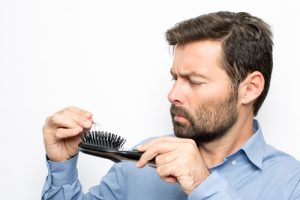 Outward Symptoms: Thinning hair, hair loss, graying hair, age spots, loss of lean muscle mass, diminished libido, wrinkles on the face and hand, loose saggy skin, struggles with weight management and increased cellulite on the thighs and buttocks.
Outward Symptoms: Thinning hair, hair loss, graying hair, age spots, loss of lean muscle mass, diminished libido, wrinkles on the face and hand, loose saggy skin, struggles with weight management and increased cellulite on the thighs and buttocks.
Inward Symptoms: You may also notice internal symptoms, like memory loss, fatigue, mental fogginess, mood swings, being upset for no reason at all, being angry for no reason at all, and feeling like you no longer want to live.
Common Symptoms: The most common symptoms are that people notice a decline in energy, a loss of motivation, general feelings of lethargy during the day or fatigue during the afternoon. You may also notice that you do not get a good night's sleep and don't wake up feeling rejuvenated.
Your endurance for doing simple tasks seems to have declined, you find that you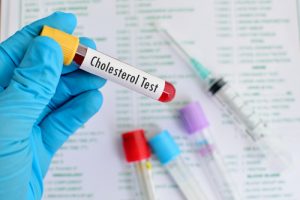 don't have the endurance or the stamina you used to have for exercise and may feel that you have lost your sex appeal.
don't have the endurance or the stamina you used to have for exercise and may feel that you have lost your sex appeal.
Eyesight and the ability to focus on things declines as well. Pain in the joints and muscles becomes more noticeable and you may notice that you lost flexibility and range of motion. A blood test may indicate that you have high cholesterol.
A decreased capacity to recover from viral infections and seasonal colds, including the flu is common -- usually a result of a declining immune system that comes with aging. Increased stress, depression, and anxiety over the simplest tasks may be present. A loss of productivity and mental acuity you may also notice to be present in deficient patients.
How Do I Know if I Need HGH Injections?
If any of the premature symptoms of aging and signs that have been mentioned above are detrimentally affecting your ability to perform normal tasks in your life, then you should begin to immediately look into whether or not you are suffering from a deficiency.
How Old Should One Be to Undergo Injectable HGH Therapy Treatments?
 If you are over the age of 30, you should seek to get a blood test every three to six months to measure any hormone deficiency that might be present and we can provide these types of health and wellness evaluations for you.
If you are over the age of 30, you should seek to get a blood test every three to six months to measure any hormone deficiency that might be present and we can provide these types of health and wellness evaluations for you.
Prior to 30 years of age, the body is still producing sufficient amounts of this vital molecule from the pituitary gland and deficiency is rare.
There are exceptions though, such as some children who used HGH to assist them in their growth might be deficient before the age of 30.
However, these adults are typically working with their endocrinologist to make sure that their progress is sufficient and the prognosis is good. Adults who have not used treatment for Idiopathic Short Stature (ISS) can utilize the resources of an endocrinologist for HGH therapy, which will be discussed in the forward section.
The best time for an individual to seek out this kind of treatment will depend a lot upon how their body releases and processes this chemical molecule. Some people may need treatment in their early thirties while others may not require treatment until their forties, fifties, sixties and the silver years onward.
How to get an HGH Prescription
Now that we have covered many of the highlights of what HGH therapy is and we have explored the topic thoroughly, now it's time to go over the process of getting prescribed HGH injections from your physician.
This may appear at first to be something that is complicated because most general practitioners are not familiar with this amazing hormone molecule. Most people who have a primary care physician will learn rather quickly that they do not have a doctor who is eager or open to prescribing HGH injections.
Though finding a physician who will prescribe HGH therapy is actually not as complicated as it  appears, there are some hurdles. Finding HGH clinics across the United States is easy to do, but it can become complicated and expensive when you have to constantly make repeated visits.
appears, there are some hurdles. Finding HGH clinics across the United States is easy to do, but it can become complicated and expensive when you have to constantly make repeated visits.
Fortunately, our hormone clinic will allow you to go and get your blood drawn locally in your city or town and when the results come back our doctors can do the evaluation over the phone.
The Florida HGH clinic provides the best prices when it comes to Hormone Replacement Therapy services and products. If you are looking for the safest, easiest, and most intuitive way to get HGH injections, our professional team of medical specialists have streamlined the entire process.
Blood testing and physical exams are available at clinics local to you and there are also independent laboratories all over the United States, like LabCorp and Quest Diagnostics.
Fill out the online medical profile! It is easy to do, it is encrypted and will safely transmit your medical history to our endocrinologists and physician specialists. Your information is confidential and secure, protected by privacy laws.
What is the Test for Growth Hormone Deficiency?
The test for Growth Hormone Deficiency is an analysis of your IGF-1 levels. Since HGH stimulates IGF-1 in the liver, a blood test can determine what your levels are the morning you have blood drawn. Anti-aging physicians generally believe that your IGF-1 levels should be around 240 to 260 ng/dl, and never above 290 to 299 ng/dl.
Can You Tell Me What I Have to do to Get a Physician to Give Me a Prescription for HGH injections?
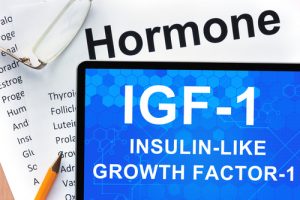 You must have a genuine clinical need and necessity for Growth Hormone therapy, which can be determined by testing your blood.
You must have a genuine clinical need and necessity for Growth Hormone therapy, which can be determined by testing your blood.
We are not looking to see if your hormone levels are appropriate for someone your age, but rather whether or not they are in the optimal range.
Chances are, if you are experiencing the described symptoms and your IGF-1 levels are lower than optimal, we can provide you with treatment. Most patients are approved for therapy.
We do not however provide HGH therapy for bodybuilders, professional athletes or people looking to use treatments for sports enhancement.
What Type of Physicians Prescribe HGH Therapy?
Any physician who specializes in HRT, endocrinology, sports medicine, internal medicine and other related specializations is equipped to properly prescribe Growth Hormone injections. The physicians at American HGH Clinics specialize in HGH, Sermorelin, and Testosterone injections.
Can You Tell Me What Are the Benefits and Side Effects of Growth Hormone Therapy?
As with any kind of Hormone Replacement Therapy, one should ask a number of questions before they choose to get started with a Growth Hormone replenishment treatment program.
Let's look at some of the benefits and side effects of injectable HGH therapy to determine if the benefits outweigh the risks. It is important that we look at both the pros and the cons to determine the facts and make an informed decision.
Can You Tell Me What are the Benefits of Growth Hormone Therapy?
Restoring Growth Hormone levels to their optimal balance can provide numerous health benefits. Sleeping more soundly and waking up fully refreshed is one of the most commonly reported effects of HGH therapy. Improved cellular regeneration properties can help provide the tissues and organs with the vital cells needed to maintain their size, function, and strength.
When collagen levels are improved, it can make the skin look plump firm and healthy, keeping the skin tight and youthful-looking. This tends to significantly reduce the appearance of wrinkles, fine lines, and age spots which accumulate with aging.
 Mental outlook generally improves, bringing increased mental sharpness, intense focus, improved short-term memory, and long-term memory and brain clarity.
Mental outlook generally improves, bringing increased mental sharpness, intense focus, improved short-term memory, and long-term memory and brain clarity.
Weight management is easier, because excess fat is slowly melted away over the course of a three to six-month protocol.
Muscle and bone strength, including structural integrity, is generally improved. Aches and pains, which are generally common in the joints among aging patients are lessened to a great degree.
One of the most marked improvements is recovery from physical exertion in the gym or from general life activities. The time to recover from physically demanding activity tends to be significantly shortened compared to the previous length of time. When the sex drive is restored and sexual sensitivity improved, physical relationships tend to feel like those from the younger years of your life, especially in your 20s.
As we age, there is a loss of sexual endurance and sensitivity. Sex is less pleasurable as we get older because of lower sensitivity to sexual stimulation and declining sex hormones. Replenishing sex hormones does wonders for bedroom intimacy.
Are There Dangers, Risks or Side Effects of Using HGH Injections?
With any kind of medical intervention involving bio-identical hormones or pharmaceutical  drugs, there are always risks, dangers or side effects to consider before starting.
drugs, there are always risks, dangers or side effects to consider before starting.
With HGH injections some of the main dangers are usually associated with abuse, or people attempting to circumvent the proper legal medical channels by ordering hormones illegally from black market sources like Mexico and China.
People who avoid getting a legitimate HGH prescription from an American doctor can put themselves at considerable risk of getting fake or impure products.
When HGH is legally obtained under doctor-monitored supervision and constant care by trained specialists, who understand the proper dosage and protocols, generally the risks, dangers and side effects are minimized.
The risks of abuse include carpal tunnel syndrome, water retention, muscle pain, diabetes, abnormal bone growth, abnormal organ growth (like HGH gut), and increased risk of cancer. More commonly, people who inject HGH may feel tingling or numbness, nausea, bruising at the injection site, dizziness, or flu-like symptoms.

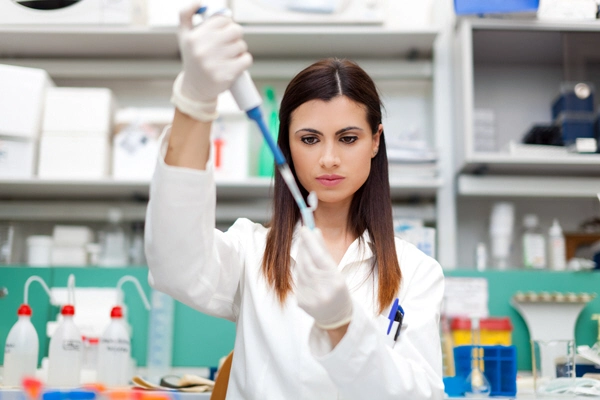
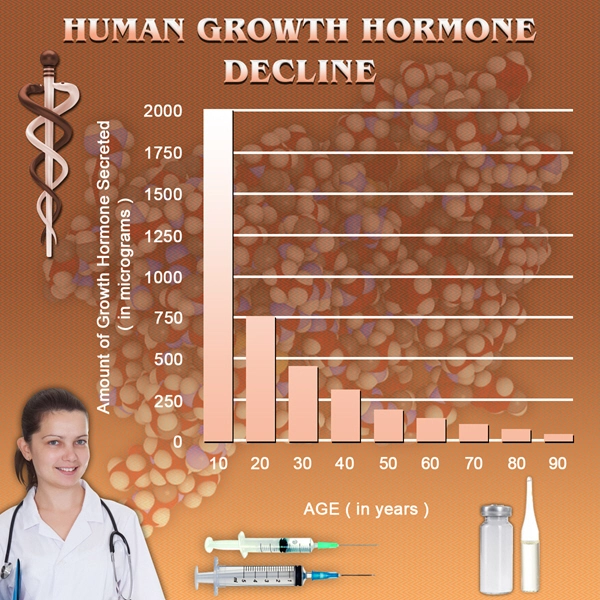
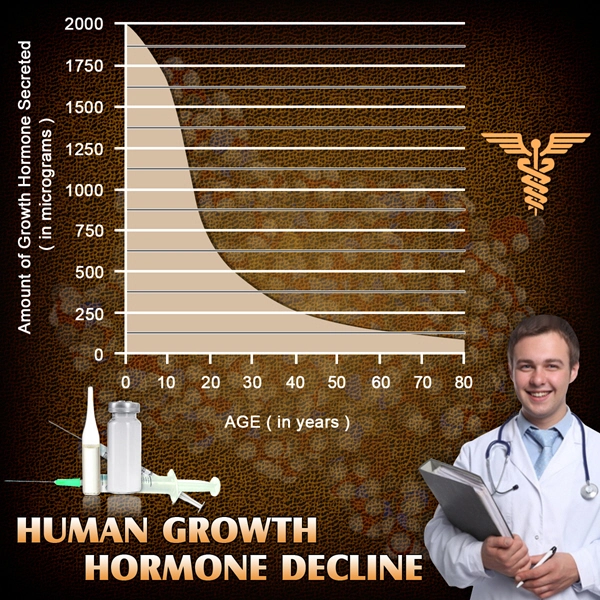
List of USA state clinics - click a flag below for blood testing clinics.
Word Count: 2659


















































